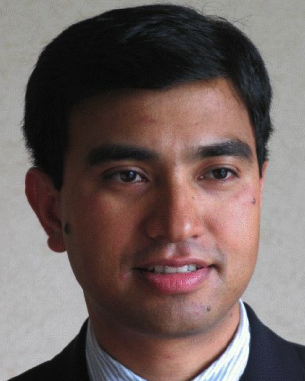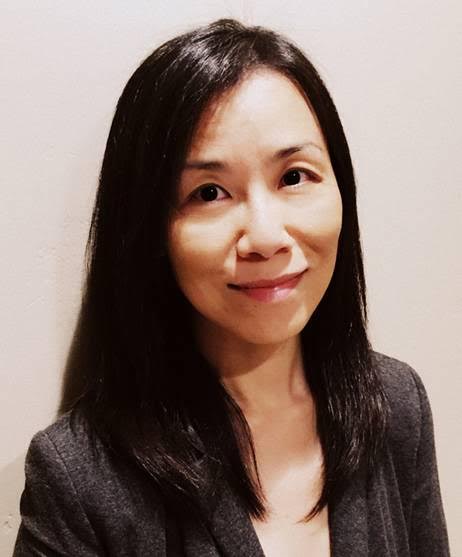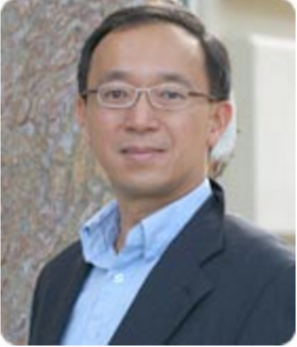


Industry
Forums
Future Trends of Technology Innovations
Moderator: Haohong Wang, General Manager, TCL
Research America, USA
Speakers:
John Apostolopoulos, VP and
CTO, Cisco, USA
Bo Begole, VP and Global Head
of the Media Technologies Lab, Huawei, USA
Achin Bhowmik, VP and General
Manager, Intel, USA
Liu Qiao, Technical Director,
Software Electronics & Mechanical Systems Laboratory, 3M Company, USA
Time: 16:00-18:00, Friday, January 27, 2017

John Apostolopoulos is VP/CTO of the Cisco’s
Enterprise Segment where he drives the technology and architecture direction for
Cisco’s efforts in the enterprise space. He also founded and leads Cisco’s
Innovation Labs, covering Internet of Things (IoT), wireless, application-aware
networking, multimedia networking, indoor-location-based services, and deep
learning for visual analytics. Previously, he was Lab Director for the Mobile &
Immersive Experience Lab at HP Labs. His work spanned novel mobile devices and
sensing, client/cloud multimedia computing, multimedia networking, immersive
video conferencing, SDN, and mobile streaming media content delivery networks
for all-IP (4G) wireless networks. He is an IEEE Fellow, IEEE SPS Distinguished
Lecturer, named “one of the world’s top 100 young (under 35) innovators in
science and technology” (TR100) by MIT Technology Review, and received a
Certificate of Honor for contributing to the US Digital TV Standard (Engineering
Emmy Award 1997). He has published over 100 papers, including receiving 5 best
paper awards, and has about 70 granted US patents. John also has strong
collaborations with the academic community and was a Consulting Associate
Professor of EE at Stanford (2000-09), and frequently lecturers at MIT. He
received his B.S., M.S., and Ph.D. from MIT.

Bo Begole is VP and Global Head of
the Media Technologies Lab for Huawei R&D whose mission is to create the
future of media experiences through innovations in ultra-high-efficiency
compression, computer vision/hearing, 3D modeling, augmented/virtual
reality, full field communications and personalized responsive media.
Previously, he was a Sr. Director at Samsung Electronics’ User Experience
Center America where he directed a team to develop new contextually
intelligent services for wearable, mobile and display devices. Prior to
that, he was a Principal Scientist at Xerox PARC where he directed the
Ubiquitous Computing research program creating machine learning technologies
for user-behavior modeling, mobile location-based recommendations and
responsive media. An inventor of 30+ issued patents, he is also the author
of Ubiquitous Computing for Business (FT Press, 2011) and dozens of
peer-reviewed research papers. Dr. Begole is an ACM Distinguished Scientist,
active in many research conferences and was co-Chair of the 2015 ACM
conference on human factors in computing systems (CHI 2015) in Seoul, Korea.
Dr. Begole received a Ph.D. in computer science from Virginia Tech in 1998
and prior to that was enlisted in the US Army as an Arabic language
interpreter.

Achin Bhowmik is vice president and
general manager of the perceptual computing group at Intel, where he leads the
development and deployment of Intel® RealSense™ Technology. His responsibilities
include creating and growing new businesses in the areas of interactive
computing systems, immersive virtual reality devices, autonomous robots and
unmanned aerial vehicles. Previously, he served as the chief of staff of the
personal computing group, Intel’s largest business unit with over $30B revenues.
Prior to that, he led the development of advanced video and display processing
technologies for Intel’s computing products. His prior work includes
liquid-crystal-on-silicon microdisplay technology and integrated electro-optical
devices.
As an adjunct and guest professor, Dr.
Bhowmik has advised graduate research and taught courses at the Liquid Crystal
Institute of the Kent State University, Stanford University, University of
California, Berkeley, Kyung Hee University, Seoul, and the Indian Institute of
Technology, Gandhinagar. He has >100 publications including two books and >100
granted and pending patents. He is a Fellow of the Society for Information
Display (SID), and serves on the board of directors for SID and OpenCV, the
organization behind the open source computer vision library.

Liu Qiao received his B.S. in Electrical Engineering
from Beijing University of Technology and his Ph.D. degree from Tohoku
University, Japan concentrating in learning algorithm in control systems. Liu
worked both in academia as assistant professor of control systems at Beijing
University of Technology and in automotive R&D as an engineering and leader at
Hitachi Automotive Products and Toyota Motor Engineering and Manufacturing North
America before joining 3M. Liu started his industry career as an advanced
automotive control system expert and progressed to technical operations manager
in service, vehicle program manager, e-Business manager and research manager.
Liu successfully led Toyota’s first Canadian hybrid vehicle program and its
market introduction. Liu is also a founding member of Toyota Research Institute
of North America, and drove establishment of Toyota’s technologies, engineering
platforms and programs on Power Electronics, Active Safety Systems, Autonomous
Driving, Drivetrain Management, Robotics and Intelligent Transportation System.
Liu’s current efforts have focused on building technology platforms,
infrastructure, and product pipelines to mechanize, electrify, and digitize
advanced 3M materials to accelerate business growth globally. Liu holds 12 US
patents, has 49 publications and is also an active member/supporter of many
academic and industrial professional associations. Liu was recently recognized
as the Smart Industry 50 Innovators on the leading edge of digital
transformation.
The Future of Media Coding and Streaming
Moderator: Shan Liu, Director, MediaTek, USA
Speakers:
James Bankoski, Director,
Google, USA
Jill M. Boyce, Media Architect,
Intel, USA
José Roberto Alvarez,
Director, FutureWei Technologies, USA
Anne Aaron, Director, Netflix,
USA
Time: 10:00-12:00, Thursday, January 26, 2017

Shan Liu is Director of Technology Development at
MediaTek USA Inc. Prior to joining MediaTek in 2010, she held various technical
and management positions at Sony (USA), Samsung (USA), Mitsubishi Electric
Research Laboratories (MERL), IBM, Rockwell and AT&T Labs. Since 2006, Dr. Liu
has been an active participant and contributor to ISO/IEC and ITU-T standards.
By late 2015, she had published more than 200 standard contributions. Many of
her inventions have been adopted by international standards such as ITU-T H.265
| ISO/IEC HEVC and built into communication and multimedia products. Dr. Liu has
chaired and co-chaired a number of ad-hoc and technical groups through standard
development and served as editor of HEVC Screen Content Coding standard.
Currently she represents MediaTek in several international standard development
groups, including the Joint Collaborative Team on Video Coding (JCT-VC) and
Joint Video Exploration Team (JVET) of ITU-T SG16 and ISO/IEC MPEG, MPEG-DASH
and MPEG-Systems, etc. Dr. Liu received the MediaTek R&D Gold (highest honor)
Award in 2013 in recognition of her contributions to video coding technology
development and standardization. She is the inventor of more than 50 U.S. and
global patents, and author of more than 30 peer-reviewed journal and conference
papers. She received B.Eng. degree in Electronic Engineering from Tsinghua
University, Beijing, China, M.S. and Ph.D. degrees in Electrical Engineering
(Minor in Computer Science) from University of Southern California, Los Angeles,
USA.

Jim Bankoski is a Director at Google responsible for
Google's video, audio, and image compression efforts. He's the former CTO of On2
Technologies and a technical contributor to all of On2 / Google's video codecs
from Tm2x through VP9, including video codecs widely used in Flash, Skype and
now WebM.

José Roberto Alvarez is Director of Strategy and
Planning at Futurewei Technologies in Santa Clara, California, where he is
responsible for strategic development of Media Technologies for Huawei R&D
worldwide. He started his career at Philips Laboratories and has been involved
in architecting, designing and implementing media technology products for a
variety of industries including broadcast, consumer, post-production and
computer graphics for companies including Philips, Broadcom, Maxim, Xilinx, and
three successful start-ups in Silicon Valley. He has actively participated in
major industry inflection points in the last 20 years, most notably in the
development of H.265, H.264, MPEG-4, MPEG-2, HDTV, desktop video graphics, and
Extensible Processing FPGA platforms. Mr. Alvarez earned Bachelor’s and Master’s
degrees in Electrical Engineering with distinction from The City University of
New York. His work has been granted 46 US and 6 EU patents.

Jill M. Boyce is Senior Principal Engineer and Media Architect at
Intel. She represents Intel at the Joint Collaborative Team on Video Coding (JCT-VC)
and Joint Video Exploration Team (JVET) of ITU-T SG16 and ISO/IEC MPEG. She
serves as Associate Rapporteur of ITU-T VCEG, and was an editor of the
Scalability High Efficiency Video Coding extension (SHVC).
She received a B.S. in Electrical Engineering from the University of Kansas
in 1988 and an M.S.E. in Electrical Engineering from Princeton University in
1990. She was formerly Director of Algorithms at Vidyo, Inc. where she led video
and audio coding and processing algorithm development. She was formerly VP of
Research and Innovation Princeton for Technicolor, formerly Thomson. She was
formerly with Lucent Technologies Bell Labs, AT&T Labs, and Hitachi America. She
was Associate Editor from 2006 to 2010 of IEEE Transactions on Circuits and
Systems for Video Technology. She is the inventor of 145 granted U.S. patents,
and has published more than 40 papers in peer-reviewed conferences and journals.

Anne Aaron manages the Video Algorithms team at Netflix, the team
responsible for the video analysis and processing in the Netflix cloud-based
encoding pipeline. The team is tasked with generating the best quality video
streams for more than 81 million Netflix members worldwide, and is actively
involved in defining next-generation video through academic research
collaboration and standardization work. Prior to Netflix, Anne had technical
lead roles at Cisco, working on the software deployed with millions of Flip
Video cameras, Dyyno, an early stage startup which developed a real-time
peer-to-peer video distribution system, and Modulus Video, a broadcast video
encoder company.
During her Ph.D. studies at Stanford University, she was a member of the
Image, Video and Multimedia Systems Laboratory, led by Prof. Bernd Girod. Her
research was one of the pioneering work in the sub-field of Distributed Video
Coding. Anne is originally from Manila, Philippines. She holds B.S. degrees in
Physics and Computer Engineering from Ateneo de Manila University and M.S. and
Ph.D. degrees in Electrical Engineering from Stanford University.
The Future of Automobiles
Moderator: Annie Guan, NextEV, USA
Speakers:
Nick Sugimoto, Sr. Director,
Honda Silicon Valley Lab, USA
Louay Eldada, CEO and
Co-Founder, Quanergy Systems, USA
YC Chao, Co-Founder and CTO, Telenav, USA
Jason Creadore, Co-Founder and
VP,
Civil Maps, USA
Tim Wong, Technical Marketing
for Autonomous Vehicles, NVIDIA, USA
Time: 16:00-18:00, Thursday, January 26, 2017

Nick Sugimoto is the Senior Program Director of Honda
Silicon Valley Lab (www.hondasvl.com), the open innovation lab of global Honda
R&D based in Mountain View, California. Nick oversees Honda’s advanced
information technology R&D in Silicon Valley, as well as, strategic partnership
globally. Previously, Nick led the corporate venture capital program at Honda
where he invested in a number of innovative startup companies and built
strategic R&D partnerships. Prior to joining Honda, Nick was a successful
entrepreneur leading a series of technology venture companies in both the US and
Japan. Nick received his engineering degree from the University of Tokyo and MBA
from Haas School of Business at UC Berkeley.

Louay Eldada is CEO and co-founder of Quanergy
Systems, Inc. Dr. Eldada is a serial entrepreneur, having founded and sold three
businesses to Fortune 100 companies. Quanergy is his fourth start-up. Dr. Eldada
is a technical business leader with a proven track record at both small and
large companies and with 71 patents, is a recognized expert in nanotechnology,
photonic integrated circuits and advanced optoelectronics. Prior to Quanergy, he
was CSO of SunEdison, after serving as CTO of HelioVolt, which was acquired by
SK Energy. Dr. Eldada was earlier CTO of DuPont Photonic Technologies, formed by
the acquisition of Telephotonics where he was founding CTO. His first job was at
Honeywell, where he started the Telecom Photonics business and sold it to
Corning. He studied business administration at Harvard, MIT and Stanford, and
holds a Ph.D. in optical engineering from Columbia University.

YC Chao is a co-founder and CTO of Telenav. He has extensive
experience in navigation technology implementation as well as software and
hardware development. His career builds on a track record of success in wireless
location technology, navigation software development for consumer applications
and for Connected Cars. Extending from Navigation on Connected Cars, he is
leading Telenav development in self-driving car technologies. YC holds a Ph.D.
in Aeronautics and Astronautics from Stanford University, a Master of Science
from the University of Texas Aerospace Engineering Center for Space Research,
and a Bachelor of Science from National Taiwan University.

Jason Creadore is the VP of Product and Co-Founder of Civil
Maps. The Silicon Valley-based startup provides self-learning cognitive
perception systems that replicate human context to enable machines to perceive,
orient and respond to the physical world. By combining localization technology
and artificial intelligence, Civil Maps is creating a new generation of maps
that enable fully autonomous vehicles to traverse any road safely and
comfortably without any human intervention. Creadore is a serial entrepreneur,
previously co-founding HelloTracks, a fleet management app that ranks in its
category's top 10 in the Google app store. Creadore previously worked at the New
York Stock Exchange and J.P. Morgan where he and his team secured over 100 tech
IPOs and executed $1.3 billion in financings in the number one deal team of
their segment. Creadore graduated from Lehigh University with a bachelor of
science.

Tim Wong leads the Self-Driving Technical Marketing
team for NVIDIA Automotive. Tim works with our customers, partners and suppliers
to enable autonomous vehicle technology using our platforms, deep learning
neural networks and artificial intelligence for high-quality, robust, flexible
and safe self-driving solutions. Before joining NVIDIA, Tim was the president of
the MHL Consortium where he drove the adoption and licensing of MHL technology,
a video transport standard that can be found in more than 900 million
smartphones, displays and accessories. Prior to MHL, Tim worked at AT&T
designing and supporting undersea fiber-optic cable systems that connect up our
world. Tim has a Certificate in Professional Program Management, a Mini-MBA in
Finance from the AT&T School of Business and the Wharton School at University of
Pennsylvania, a Masters in Computer Science from USC and a Bachelors in Computer
Engineering from Boston University.

Annie Guan is a Senior Staff Engineer of NIO
(previously NextEV USA), a global startup that makes smart, electric and
autonomous vehicles. Prior to joining NIO, Annie was leading the engineering R&D
at Honda Silicon Valley Lab. She was responsible for building innovative
solutions in connected vehicle services and vehicle intelligence using cloud
computing, big data analytics, computer vision and machine learning. She also
held various technical and managment positions at Cisco. Her current focus is on
Deep Learning, Big Data Infrastructure and Autonomous Vehicle development.
Annie received her B.S. in Computer Science with a four-year
full scholarship at Roanoke College, M.S. in Electrical Engineering and M.S. in
Computer Science from The George Washington University (GWU). She also attended
Ph.D program at GWU and University of California, Santa Cruz in the field of
Artificial Neural Network.

![]()
![]()














